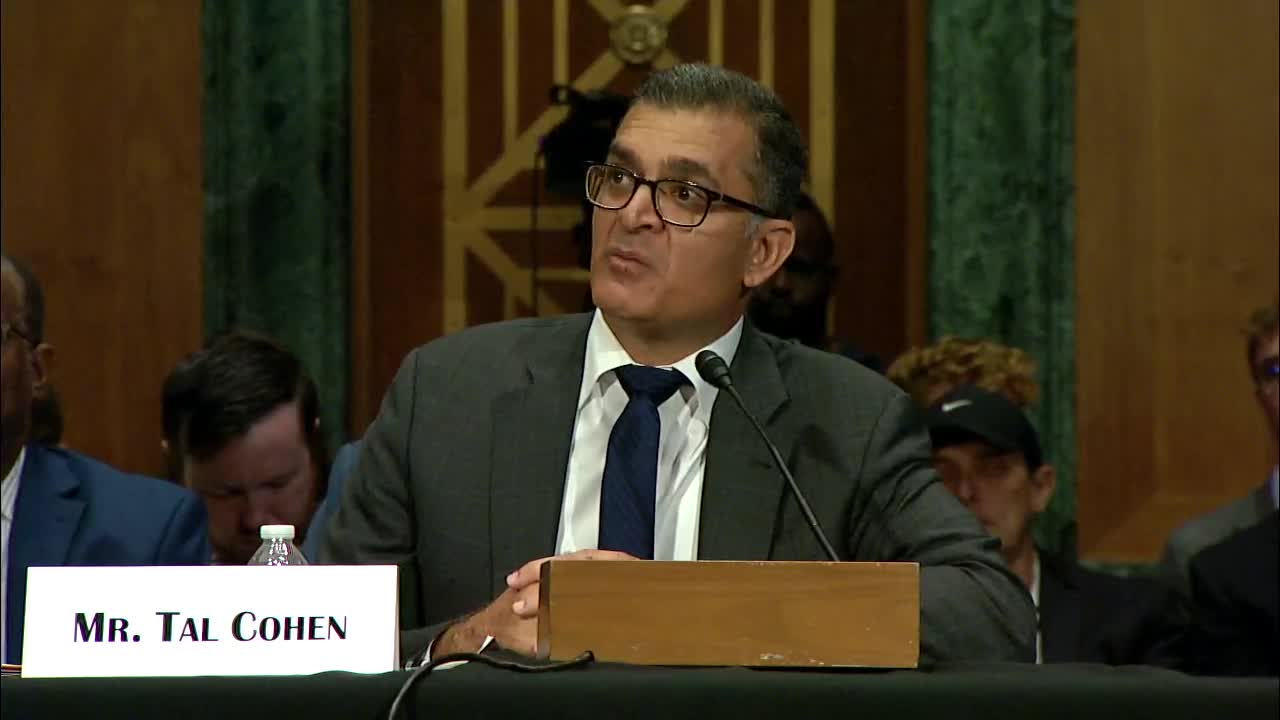Senators Propose AI Innovation Sandbox for Financial Services Regulation
July 30, 2025 | Banking, Housing, and Urban Affairs: Senate Committee, Standing Committees - House & Senate, Congressional Hearings Compilation
This article was created by AI summarizing key points discussed. AI makes mistakes, so for full details and context, please refer to the video of the full meeting. Please report any errors so we can fix them. Report an error »

In a recent U.S. Senate Committee on Banking, Housing, and Urban Affairs meeting, discussions centered on the role of artificial intelligence (AI) in capital and insurance markets, highlighting its potential to democratize access and improve investor performance. The meeting emphasized the importance of strong governance structures to ensure that AI innovations benefit all communities, particularly those facing financial barriers.
One key takeaway from the meeting was the introduction of AI-enabled order types in financial markets, approved by the Securities and Exchange Commission (SEC). This initiative aims to level the playing field for smaller broker-dealers and retail investors, allowing them access to advanced functionalities that were previously only available to larger firms with substantial research and development budgets. By democratizing these tools, the initiative seeks to enhance investor performance across the board.
Senators and witnesses also discussed the critical need for transparency and accountability in AI applications, especially in sensitive areas like credit scoring and loan eligibility. Concerns were raised about the potential for AI to either bridge or widen existing financial gaps for marginalized communities. The importance of assigning human responsibility in AI decision-making processes was underscored, with a call for clear governance structures to manage risks effectively.
Additionally, the committee introduced the "Unleashing AI Innovation in Financial Services Act," which aims to create a regulatory sandbox for AI experimentation. This initiative would allow regulators and financial entities to explore AI applications in a controlled environment, fostering innovation while minimizing liability risks. The goal is to establish a consistent regulatory framework that can adapt to the rapidly evolving landscape of AI in finance.
As these discussions unfold, the implications for local communities are significant. The integration of AI in financial services could lead to improved access to financial products and services, ultimately enhancing economic opportunities for residents. The committee's focus on governance and accountability reflects a commitment to ensuring that technological advancements serve the public good, paving the way for a more inclusive financial system.
One key takeaway from the meeting was the introduction of AI-enabled order types in financial markets, approved by the Securities and Exchange Commission (SEC). This initiative aims to level the playing field for smaller broker-dealers and retail investors, allowing them access to advanced functionalities that were previously only available to larger firms with substantial research and development budgets. By democratizing these tools, the initiative seeks to enhance investor performance across the board.
Senators and witnesses also discussed the critical need for transparency and accountability in AI applications, especially in sensitive areas like credit scoring and loan eligibility. Concerns were raised about the potential for AI to either bridge or widen existing financial gaps for marginalized communities. The importance of assigning human responsibility in AI decision-making processes was underscored, with a call for clear governance structures to manage risks effectively.
Additionally, the committee introduced the "Unleashing AI Innovation in Financial Services Act," which aims to create a regulatory sandbox for AI experimentation. This initiative would allow regulators and financial entities to explore AI applications in a controlled environment, fostering innovation while minimizing liability risks. The goal is to establish a consistent regulatory framework that can adapt to the rapidly evolving landscape of AI in finance.
As these discussions unfold, the implications for local communities are significant. The integration of AI in financial services could lead to improved access to financial products and services, ultimately enhancing economic opportunities for residents. The committee's focus on governance and accountability reflects a commitment to ensuring that technological advancements serve the public good, paving the way for a more inclusive financial system.
View full meeting
This article is based on a recent meeting—watch the full video and explore the complete transcript for deeper insights into the discussion.
View full meeting